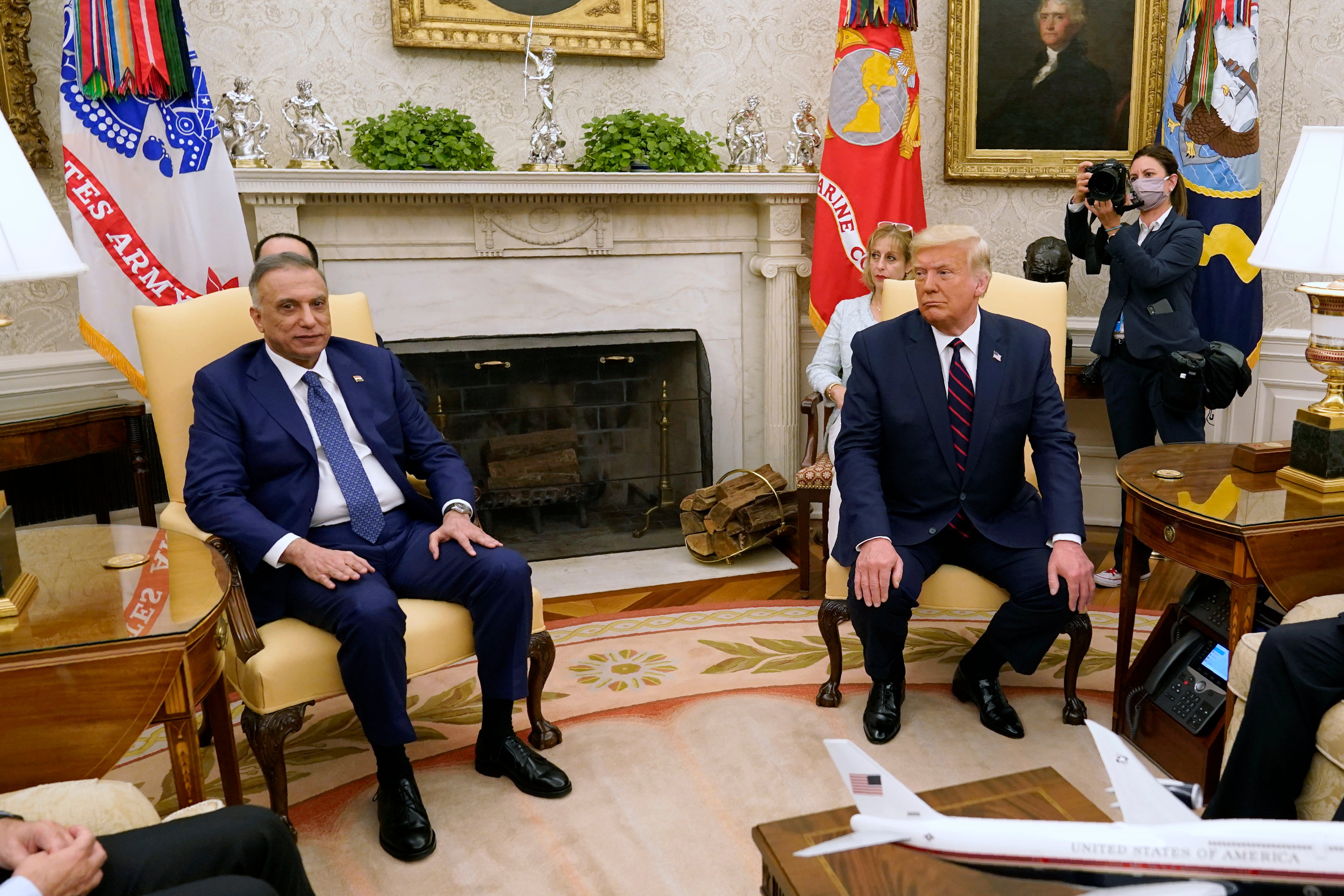In sign of frustration, US shortens sanctions waiver to Iraq
The United States has extended a sanctions waiver that enables Iraq to continue importing gas from Iran, this time granting a significantly shorter waiver period

Your support helps us to tell the story
From reproductive rights to climate change to Big Tech, The Independent is on the ground when the story is developing. Whether it's investigating the financials of Elon Musk's pro-Trump PAC or producing our latest documentary, 'The A Word', which shines a light on the American women fighting for reproductive rights, we know how important it is to parse out the facts from the messaging.
At such a critical moment in US history, we need reporters on the ground. Your donation allows us to keep sending journalists to speak to both sides of the story.
The Independent is trusted by Americans across the entire political spectrum. And unlike many other quality news outlets, we choose not to lock Americans out of our reporting and analysis with paywalls. We believe quality journalism should be available to everyone, paid for by those who can afford it.
Your support makes all the difference.The United States has extended a sanctions waiver that enables Iraq to continue importing gas from Iran but this time granting a significantly shorter waiver period, Iraqi officials and the U.S. State Department said Thursday.
The development is a sign of unease in U.S.-Iraq relations amid near-daily attacks targeting American presence in the Mideast country and underscores the standing U.S. demand that Baghdad wean itself off dependence on Iranian oil.
Washington informed Iraq’s leadership this week of its decision to grant a 60-day sanctions waiver, instead of the 120-day waiver issued over the summer, three Iraqi officials told The Associated Press. They spoke on condition of anonymity in line with regulations. The State Department confirmed the development.
The earlier, longer period had been granted when Mustafa al-Kadhimi, America's choice candidate, was selected as prime minister, but in line with waivers in place before he took office.
Following his appointment, U.S.-Iraq relations were upbeat, after having reached new lows under his predecessor Adil Abdul-Mahdi's administration, following the U.S. airstrike that killed Iranian Revolutionary Guard Gen. Qassim Soleimani outside the Baghdad airport in January. Iran retaliated with a ballistic missile strike on Iraqi bases housing American troops, wounding dozens of U.S. troops.
The Iraqi officials expressed surprise at the new, stricter waiver as it comes just one month after al-Kadhimi’s Washington visit, which was hailed as a success. But the shorter time-frame also signals U.S. frustration with Baghdad’s inability to reign in militia groups believed to be behind a recent uptick in attacks targeting the U.S. in Iraq. The U.S. has made very direct demands on the Iraqi government to clamp down on the militias.
Near-daily rocket and mortars have struck the heavily fortified Green Zone in Baghdad, which is home to the U.S. Embassy, while roadside bombs have targeted convoys carrying weapons destined for the U.S.-led coalition.
On Wednesday, a roadside bombing targeted a convoy belonging to an Iraqi company ferrying materials for the U.S. coalition. The day before, three mortars hit the Green Zone, causing no losses.
Al-Kadhimi's meeting with President Donald Trump in Washington coincided with key agreements to boost investment by U.S. companies in Iraq's energy sector, valued at $8 billion. The deals will enable Chevron to explore and develop oil production in Dhi Qar province, Honeywell to develop an important gas hub in southern Iraq, and General Electric to boost the Mideast nation's power supply.
In its statement, the State Department said Baghdad has “faced exceptional circumstances preventing it from significantly reducing its purchase of petroleum and petroleum products from Iran."
“The Government of Iraq is expected to continue negotiating contracts to install new power generation facilities, expand electricity delivery infrastructure, and increase Iraq's domestic production of natural gas as feedstock for power generation," it said.
Iraq relies on Iran for nearly 30% of its electricity needs, especially during the peak summer months. Providing evidence that Iraq is intent on weaning itself off Iranian energy dependence is a key condition for Iraq to qualify for successive waivers.
___
Associated Press writers Matthew Lee in Washington and Murtada Faraj in Baghdad contributed to this report.